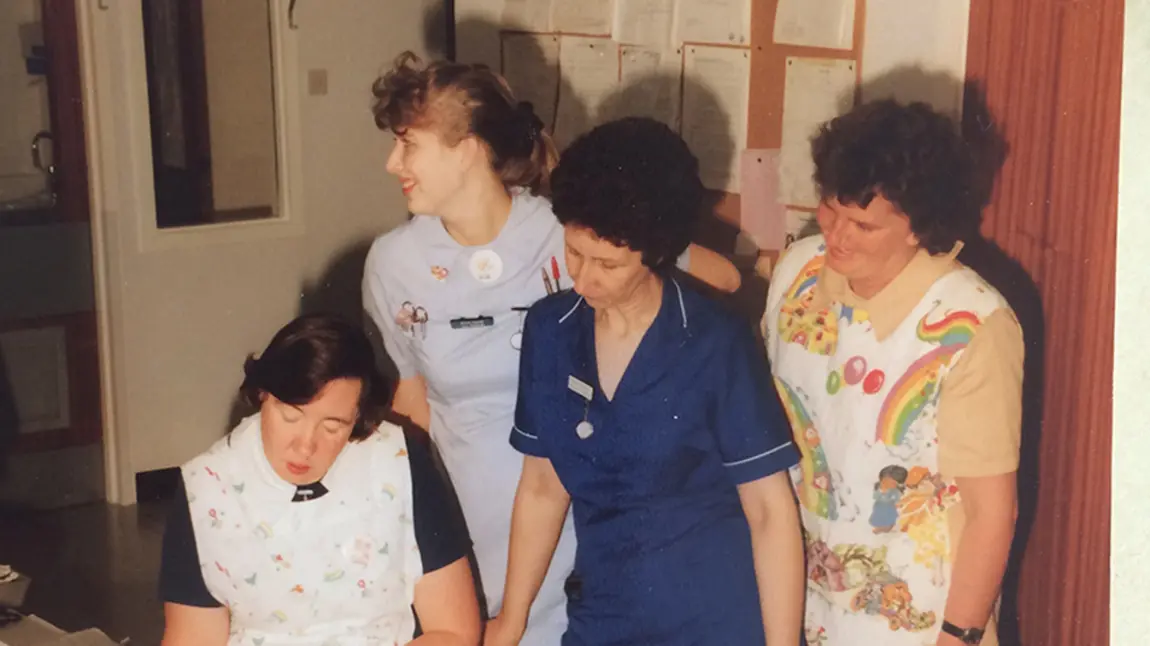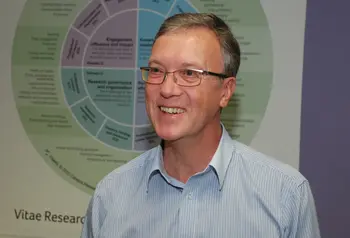Celebrating 70 years of the NHS

How did the NHS at 70 project come about?
NHS at 70 set out to create the first digital archive of the service’s history since it was founded in 1948. It showcases the diverse histories that make up the heritage of this key British institution.
For over 70 years the story of the NHS has been intertwined with all of our lives. We wanted to produce a shared national resource to preserve it for the future.
What stories are you telling?
Before we started work in 2017, little had been done to capture and preserve the human stories that lie at the heart of NHS heritage. The histories of many communities of patients and staff, especially those from diverse ethnic communities, NHS support staff, people with chronic illnesses and people with mental health illnesses, were very poorly represented.
"It's urgent as the first generations are now in their eighties and nineties."
We are working across the UK in partnership with many national and local health, community and heritage organisations. It's urgent as the first generations are now in their eighties and nineties.
So far we have interviewed over 800 people.
Why are oral histories so important for recording social history?

Listening to people share their unique and personal details helps us to connect emotionally to the past. Through their stories we can begin to compare and contrast their lives and ours.
"The stories we’ve collected so far capture the joys and the sorrows of what it means to be human."
Volunteers are at the heart of the work, and since 2017 we’ve trained around 150 people from all walks of life in oral history methods.
Working with volunteers in this way has showcased the power of oral history to democratise history. There is no way that an academic team working on their own could have built the networks and relationships in the time to support the breadth and depth of material we’ve collected.
Were there any surprises along the way?

We hoped we would collect a wonderful range of stories but I think the generosity of our interviewees in sharing intimate and personal moments in their lives has surpassed all our expectations.
The stories we’ve collected so far capture the joys and the sorrows of what it means, and has meant, to be human over the past 70 years.
How has the project showcased the diversity of people working in the NHS?

We were determined that the archive should reflect the contribution of overseas staff to the NHS. Around 30% of the NHS workforce are from ethnically diverse communities.
We have collected powerful stories from these interviewees about how they developed new services for migrant communities, faced racism and discrimination, and shared the joy of caring for patients.
How has NHS at 70 adapted to capture coronavirus (COVID-19)?
Coronavirus (COVID-19) will stand as a most extraordinary moment in the NHS’ history. As the pandemic gained ground during late February and early March we realised that we were in the unique position of being able to capture its impact on the NHS as it unfolded.
"Many people want to contribute regularly so that we can capture how things are changing as the pandemic evolves."
As the UK moved into lockdown, we switched from doing interviews face-to-face to on the telephone. We have been amazed by the response. We currently have over 200 interviewees from across the UK, between the ages of 18 to 80 plus. They represent everyone from frontline health workers, to young people, to patients with high-risk conditions.
Many people want to contribute regularly so that we can capture how things are changing as the pandemic evolves.
What have been the biggest challenges to recording stories during the lockdown?
There are lots of challenges, both technical and emotional ones. We’ve adapted our recording techniques by continuing to use our Zoom H4N recorders with an additional earpiece with a built-in mic, but it’s tricky to get archive sound quality as we’re reliant on telephone connections. In rural areas especially these connections can be poor.
How are the volunteers adapting?
Our first thoughts were about our volunteers. Was this something they would want to do during such difficult times?
We were also very mindful that there would be emotional challenges from listening to difficult stories during this period and so have adapted our normal support structures to remote working. We debrief with volunteers and are holding remote ‘drop in’ coffee and cake sessions.
We have around 60 volunteers spread across the UK and we know that they are valuing the opportunity to be involved and remain socially connected.
"The volunteers are doing something meaningful that also helps them make sense of their own experiences during this extraordinary period."
It's also underlining the hugely positive impact for volunteers. Taking part is improving their wellbeing, social connectivity and sense of feeling valued as they are doing something meaningful that also helps them make sense of their own experiences during this extraordinary period.
Do you have any tips for anyone looking to record their own social history during the lockdown?

This is very easy to do on a mobile phone that will have a recording function on it. Start by making a list of topics that you’d like to cover. For example:
- How has your day-to-day life been affected?
- What have been the biggest challenges?
- How is your community responding?
- How has your own health (physical and mental) been impacted?
When you are ready to record, begin the recording with the date and time, your name and some details about where you live. Then move on to talking about the areas you’d like to cover. Most importantly plan how you are going to save your recording and make back-ups!
Find out more
Explore the archives online and find out more on the NHS at 70 website.



